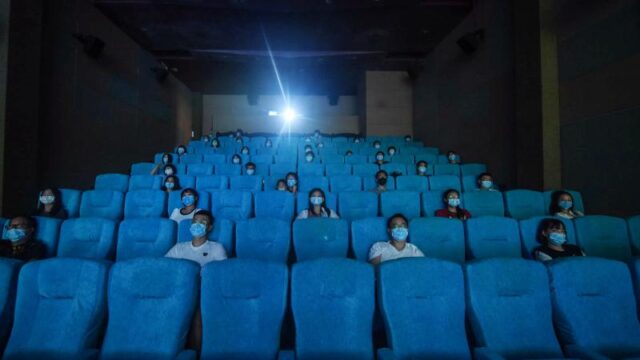According to Wall Street Journal reporter Erich Schwartzel, today’s Hollywood blockbusters are explicitly constructed to appeal to Chinese moviegoers — and pass muster with the Chinese government.
He cites the following examples of product placement: Mark Wahlberg’s character in the 2014 film Transformers: Age of Extinction withdraws money from a China Construction Bank ATM while in Texas. A character buys Chinese protein powder at a Chicago convenience shop in another scene from the same film.
Age of Extinction became the highest-grossing picture in China just ten days after its debut. Although the film has since been overshadowed at the box office by a slew of new blockbusters, Schwartzel believes its legacy lives on.
“You’ll start to notice it everywhere,” adds Schwartzel, who has trained his eye to find “Chinese aspects” in films. “Now when I go to the movies, I can see the Chinese cellphone, even though it’s blurry in the picture.”
Schwartzel discusses China’s rising impact on Hollywood in his latest book, Red Carpet: Hollywood, China, and the Global Battle for Cultural Supremacy. He claims that China has seen how Hollywood films have helped sell America to the rest of the world, and that it now wants to do the same.
“As China’s goals on the global stage have grown and it has attempted to become a greater and bigger participant in global politics,” Schwartzel adds, “it has realized how culture can play a tremendous role in assisting that endeavor.”
China is already a box office powerhouse: it will overtake North America as the world’s largest film market in 2020, according to Schwartzel, and movie companies are becoming increasingly reliant on Chinese moviegoers to break even.
“It gets to the point were going into China and generating money there… may be the difference between profit and loss on some of the biggest pictures that generate gobs of money throughout the world, like a Fast & Furious film or a Marvel superheroes feature,” he adds.
However, before a film can be aired in China, it must first pass-through censorship by the Chinese government. Schwartzel also points out that the Chinese government has been quick to punish studios that tackle issues that the Chinese government does not want the Chinese public to see or that it believes would harm China’s image.







